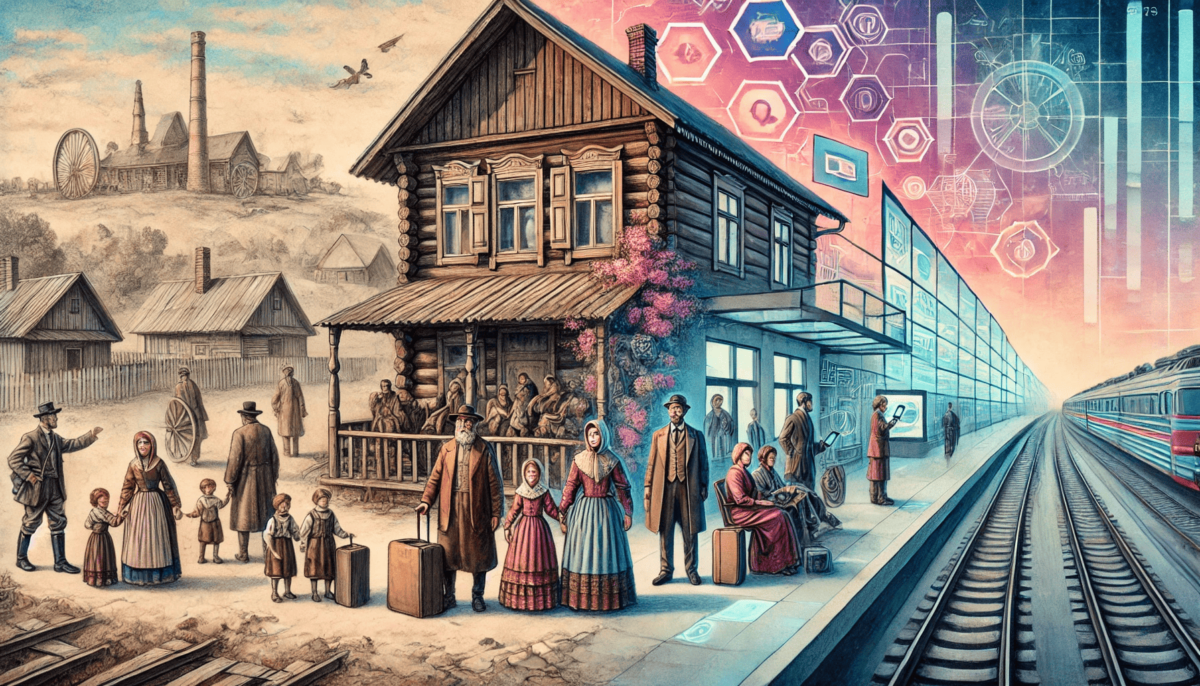History leaves its mark on every generation. The influence of past events affected the formation of family traditions, approaches to education, and interpersonal relationships. From the era of serfdom to the digital age, each new reality has set its own rules and values. Even mysterious family legends associated with ancestral curses sometimes become part of the cultural memory that defines the views and attitudes of modern generations.
The family remains the foundation of society, changing along with social conditions. Particularly dramatic changes occurred during periods of war and revolution, when traditional roles and attitudes were put to the test. Despite the upheavals, each era has shaped its own models of adaptation, survival, and value transfer to new generations.
Modern technologies open up new horizons for family relations. The advent of digital tools and online resources has changed the way relatives interact, allowing them to stay connected despite the distance. All this continues to influence the formation of unique family values and traditions, reflecting both the lessons of the past and the challenges of the present.
The impact of historical events on family relationships
Turning points in history have always been reflected in the structure of family life. After the abolition of serfdom, many families were able to plan their own future independently. Difficult times required people to show special resilience and flexibility. It was during this period that new principles of family structure began to take shape.
The revolutionary events of the early 20th century radically changed the social structure of society. Traditional patriarchal foundations have given way to new forms of family relations. Many families were forced to adapt to changing economic conditions. This has led to the emergence of new patterns of family behavior.
Military conflicts of the 20th century significantly affected the demographic situation in the country. Women often assumed the role of head of the family in the absence of men. The post-war period was characterized by the desire to create stable family unions. These processes have laid the foundation for a modern understanding of family values.
Technological changes in family dynamics
The advent of new technologies has significantly changed the way family members communicate. Modern devices allow you to maintain communication regardless of distance. Technology has affected not only communication, but also everyday family rituals. It is important to note the following aspects:
- increase the time spent using gadgets.
- changing the forms of shared leisure;
- new methods of raising children;
- transformation of traditional family customs.
Social networks have become a new space for family interaction. Many parents can now participate in the lives of children who are far away. Older family members are learning new technologies to communicate with younger generations. This creates a unique opportunity to maintain family ties despite geographical divisions.
Digitalization of education has affected the distribution of time in families. Children are increasingly learning online, which is changing their way of life. Parents adapt their work schedules to the new learning format. Such changes require a rethinking of family responsibilities and roles.
The role of historical changes in family values
Historical events are inextricably linked to the evolution of family values and traditions. Each stage of the development of society left its mark on the structure of family life. Preserving cultural continuity has become an important aspect for many generations. People tried to adapt old customs to new conditions, so as not to lose touch with the past.
Wars and revolutions often forced families to rethink their priorities. The traditional roles of men and women changed under the influence of social upheavals. This led to the emergence of new forms of relationships within the family. However, the core values, such as caring and support, remained unchanged.
Technological progress has also affected the perception of family values. Modern families are finding new ways to express affection and care. For example, video calls have replaced traditional emails, but the meaning remains the same. The ability to adapt helps maintain the stability of family ties.
Prospects for family relations in the future
The future of family relations largely depends on the pace of technological development. You can already see how digitalization is changing the usual ideas about the family way of life. New challenges require people to be flexible and ready for change. However, the basis of family relations remains unchanged-it is love and mutual understanding.
It is expected that technology will continue to play a key role in the development of family ties. They will help create new forms of communication and interaction. However, it is important to remember that technology is only a tool, not a goal. The main thing is to keep the emotional ties between family members alive.
The younger generation is already actively using modern solutions to maintain family relationships. This allows them to stay in touch even over a long distance. It is important that technology complements, rather than replaces, real communication. This approach will help maintain the depth and quality of family ties.
Questions and answers
Historical events have shaped new models of family relationships, changing traditional roles and responsibilities. For example, wars and revolutions forced families to adapt to difficult conditions, which led to a revision of values.
Technology has enabled families to keep in touch from a distance, using video calls and instant messengers. However, it is important to remember that digital tools should complement, not replace, live communication.
Family values will remain the foundation of relationships, despite changes in society and technological progress. The main thing is to maintain emotional connection and mutual understanding between family members.

